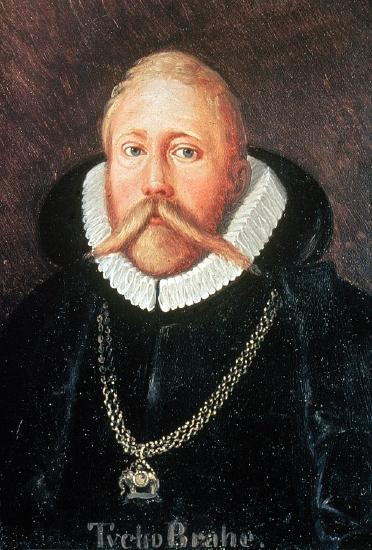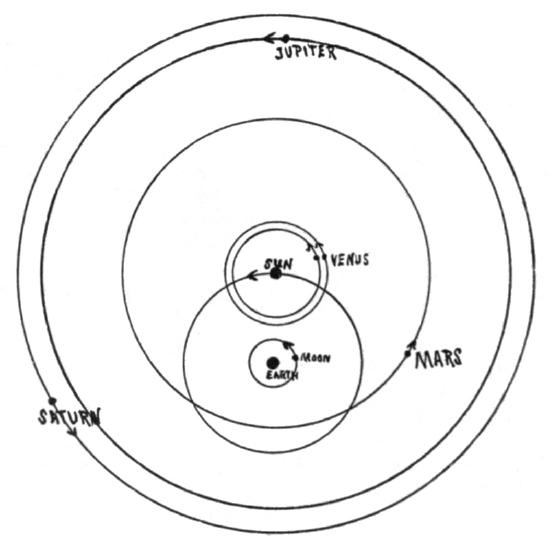3.2: Tycho Brahe (1646-1601)- The Celebrated Collector of Planetary Data
( \newcommand{\kernel}{\mathrm{null}\,}\)

Tycho Brahe by Eduard Ender (1822-1883)/Public domain;
A few years after the death of Copernicus, the man who would be celebrated as the greatest astronomer of his age was born in Denmark. Tycho Brahe came from a poor family and was raised by an uncle. However, his uncle rescued the King of Denmark from drowning and subsequently died of pneumonia. The grateful King Frederick II rewarded the young Tycho and made him a rich man.
With his newfound wealth, Tycho enrolled in the University of Copenhagen, initially to study law, but he also studied astronomy. Later, he attended the University of Rostock to study medicine. While at Rostock, his volatile temper got the better him and got into a duel with a fellow student over who was a better mathematician. The duel ended with his opponent slicing of Tycho’s nose, requiring him to wear a prosthetic nose made of silver or gold.
King Frederick II then granted Tycho the island of Hven as the site of his observatory, Uraniborg. There, Tycho designed and built many of his own instruments and began compiling what would become his celebrated and voluminous collection of observations of the stars and the planets. In 1572, he studies a “new star” (stellar nova), challenging the idea that the heavens were fixed and eternal. Now, we know that a nova is an old star that has exploded. His vast quantity of observational data led to Tycho Brahe being hailed as the “greatest astronomer of his age.” Tycho also loved fine clothes and good food. He spent the money of his patron as fast as he could on his research and his lifestyle.
However, Frederick II died in 1588 and was succeed by his 11-year-old son, Christian IV. Until Christian came of age, a regency council ruled Denmark and the leader of this council was not friendly toward Tycho. Using Tycho’s extravagant spending as a pretext, the council forced Tycho in exile. He eventually settled in Prague where he continued his research.
Unlike Copernicus, Tycho remained unconvinced about the validity of heliocentrism. In particular, he pointed to the lack of parallax as proof against it. However, he offered a compromise model in which the Sun, Moon, and stars still revolved around the Earth, but the five planets: Mercury, Venus, Mars, Jupiter, and Saturn, revolved around the Sun. He judged this model as adequate to explain retrograde motion and changes in planetary brightness.
Tycho’s death was a colorful as his life. While attending a banquet held by the Holy Roman Emperor, Rudolf II in 1600, Tycho drank copiously and refused to leave the table, as that would have been a breach of etiquette. He developed a urinary ailment and died eleven days later of an infection or burst bladder.
During his life, Tycho jealously guarded his status as the most celebrated astronomer of his age, to the point where he was reluctant to share his copious data on planetary motion out of fear of being overshadowed. Unfortunately, he was indeed overshadowed by his young assistant, a young German astronomer who would use Tycho’s stockpile of data to develop a model that better explained planetary motion than any previous one and laws that would become part of the foundation of modern understanding of motion.
 Tycho Brahe's compromise system putting the planets orbiting the Sun while the Sun orbited the Earth.
Tycho Brahe's compromise system putting the planets orbiting the Sun while the Sun orbited the Earth.
Unknown author/Public domain;


